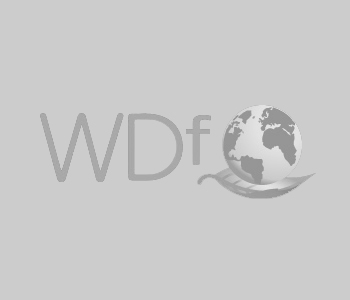Michel Rocard is considered one of the leading figures of the French left in the 20th century. Along with such luminaries as Jean Jaurès, Léon Blum, Pierre Mendès-France and François Mitterrand, Rocard helped lay the intellectual foundations o...

This article is adapted from the presentation Michel Rocard gave at the China-Europa Forum (Brussels, October 4, 2007) during the opening session of the workshop on world governance. In this text, Michel Rocard presents the case for Europe while defining what he sees as the five major threats faced by our planet today and the ways we might try to address these threats.
There is no such thing as a formalized, official European view on the problems of global governance.
But there is very likely a European cultural bias in the way most European citizens feel about this problem, and in the way the European nations have behaved collectively on these issues.
The main European consensus turns around the fact that our planet is presently suffering from many threats.
- The first is ecological and includes the risk of a dangerous change in the climate, produced by the excess in greenhouse effect gases, a fast-growing diminution of biodiversity, and a vast excess of waste and rubbish matters.
- The second is the extension of national violences and crisis caused by identity frustrations or denials.
- The third is terrorism.
- The fourth is the reappearance of mass poverty and precarious work, even in rich countries.
- And the fifth is the enormity of the financial disequilibrium which has presently appeared and is by no means sustainable for long time.
Another element of what is probably a European consensus is the observation that none of the problems they constitute can be solved by isolated nations, and not even by nations acting collectively on an agreed basis. The continents and the world are necessary scales for the pertinent action which is now needed, and increasingly recognized as urgent.
The dream of a “world government” is massively rejected in Europe, by official institutions as well as by individual citizens. The main reason is the feeling that such a world government would have to be extremely bureaucratic and brutal if it wanted to have real control on the diversity of the world. It would therefore be extremely difficult to obtain a consensus on the building of such an entity.
But the need of a better world regulation remains. The basis of what appears as a European consensus on this subject is the feeling that there must be in the future a legal recognition of what is already practically observed : national sovereignties do not make any sense when world regulations are needed. Pollution has no borders, nor do terrorism or capital-market disequilibria.
Another principle is founding the European attitude on these subjects : the conviction that the difficulties and the limits of the possible world regulations through international treaties can be partly compensated by continental efforts and decisions. This is precisely one of the most powerful motives of the European construction.
What about the other continents? How do our Chinese friends perceive this?
3.1. The first is a reform of the UN
- All the economic and financial structures of the international community should be interrelated. An Economic and Social Security Council should have the capacity to call the IMF, the World Bank or the WTO to treat certain urgent situations.
- Conventions agreed and signed in the International Labour Organization should be legally considered in the World Trade Organization.
- The Security Council should receive the right (a modification of the Charter) to delegate to regional organizations (the African Union, the European Union… some day the ASEAN) the right to make use of the Chapter 7 of the Charter.
- The organization should have competence to take in charge the territories from which any organized and administered state has disappeared.
- And naturally the Security Council should be modified. Some representatives of “the South” should be added to its permanent members.
The veto right should be limited. There are several ways to do that.
3.2. The second path is the most evident
International treaties should be the main source of world regulation. This concerns climate-change threats as well as the procedure for crisis treatment, world police measures against terrorism, and the economic and financial world disequilibria.
The key point is now the acceptance of coercive measures for most of these fields.
3.3. The third path is the progressive penetration of the international scenery by justice
After Nuremberg, humanity did create other courts to judge international criminals, in Rwanda, in former Yugoslavia, in Sierra Leone. Now the International Penal Court enters in legitimacy.
Most Europeans have encouraged this process.
The great questions of the present days are:
- When will the last missing nations join the court?
- Should the court be completed by an international police competent to arrest
international criminals?
- Should we also choose a judicial procedure:
_ To end the scandal of fiscal paradises?
_ To forbid massively polluting activities?
_ To deter all states from supporting terrorist activities?
4.1. The project of a Declaration of Interdependence.
4.2. How to re-equilibrate world trade and WTO activities.
4.3. How to create world regulations for the management of collective goods (air, drinking water, oil, etc.) and services (education, health, etc.).